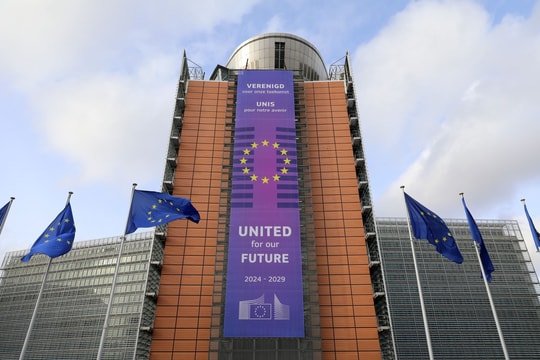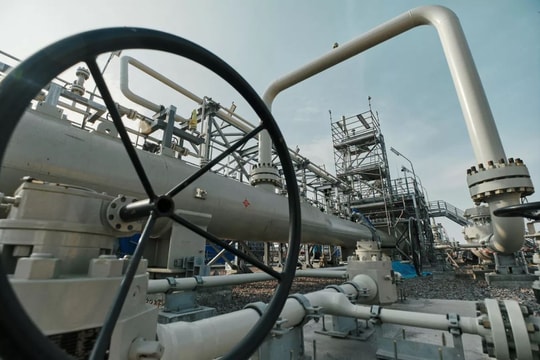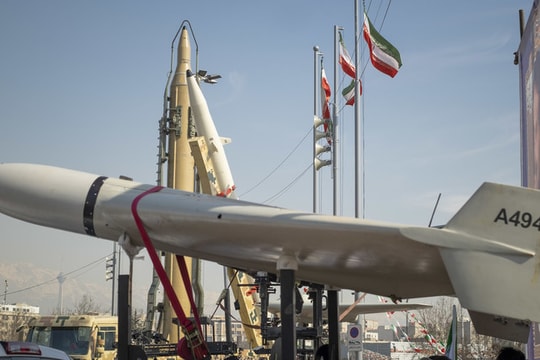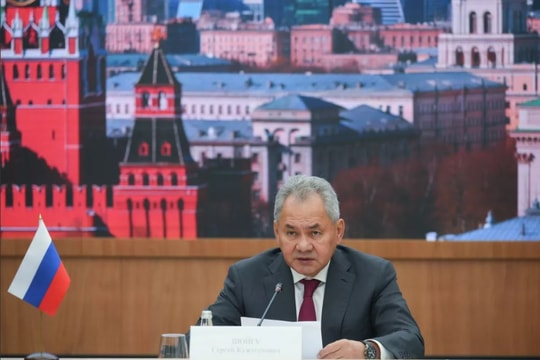France and Germany recalculate relations with Russia, increase independence from the US?
Proposing the Summit with President Putin, the French-German leaders do not seek a peace policy but want to increase independence from the US and consolidate the EU's position in the multipolar world order.
German Chancellor Angela Merkel and French President Emmanuel Macron called for a summit between the European Union and Russia, but the idea was "dead in the water" at the EU Summit in Brussels on June 25. Not only did it not receive consensus, the proposal also faced strong opposition from many European countries.
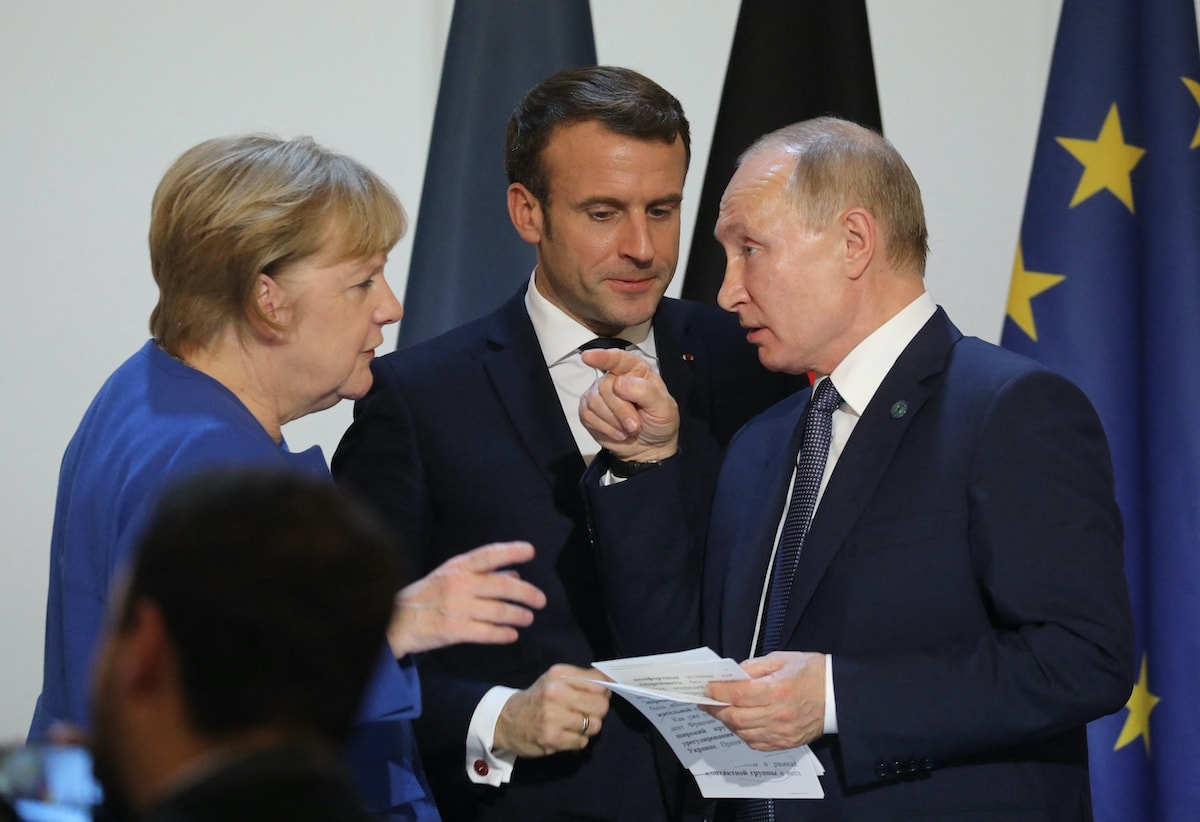 |
Before going to Brussels, Chancellor Merkel discussed the above idea before the German Parliament in Berlin on the morning of June 24.
"The US President's exchange with the Russian President is not enough. Of course, I am very satisfied with that meeting, but the European Union must also create other forms of exchange," the German leader said.
Citing the wars in Libya and Syria, Ms. Merkel said: "We (the EU) must define a policy with common strategic interests, not only in climate protection but also in areas such as peace and security."
Mrs. Merkel also consulted President Macron about this idea in advance, who summarized the proposal at the EU Summit on the evening of June 24.
"Dialogue is necessary to stabilize Europe but it must be sustainable because we will not give up any of our values or interests," Mr. Macron said.
The French president said: "We cannot have a purely defensive attitude towards Russia, but must rely on each specific case. For example, we have witnessed a very legitimate structured exchange between President Joe Biden and President Vladimir Putin."
Tensions between the EU and Russia have been rising in recent months. Lithuanian President Gitanas Nauseda has attacked the Franco-German idea, saying: "This is like talking to a bear to save some honey." Danish Prime Minister Mark Rutte has also flatly rejected any idea of a meeting with President Putin.
Policy independence from the US
Certainly, with their extensive experience in negotiating with Russia, President Macron and Chancellor Merkel clearly understand that a Summit with President Putin will not create a peace policy. Instead, the intention to promote military and diplomatic policy with Russia is believed to be aimed at strengthening independence from the US and consolidating the EU's position in the multipolar world order, while expanding the space for negotiations with Moscow and Beijing.
Chancellor Merkel said that from a European perspective, it is not enough to simply conduct discussions through the US President, but the EU must proactively promote its views through direct discussions.
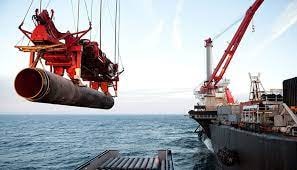 |
| Russian companies are building Nord Stream 2 to deliver gas to Europe. |
Despite proposing a summit with Russia, both France and Germany want to show that they will not be soft on Moscow.
France took part in the large-scale Sea Breeze naval exercise in the Black Sea on June 28, organized by the United States and Ukraine, with 5,000 soldiers, 32 warships and 40 fighter jets from various countries. For the first time, Germany sent two Eurofighter jets from the 71st Tactical Air Wing “Richthofen” to Romania on June 24 to carry out patrol missions over the Black Sea together with British forces until July 9.
However, President Macron and Chancellor Merkel both aimed at the "big picture" - that is, the EU's strategic autonomy when proposing to resume the EU-Russia dialogue. The two leaders said that President Biden, although agreeing with the assessment of President Putin as a "killer", was willing to hold a summit with the Russian leader because it served US interests. Both also felt uncomfortable seeing the EU putting itself in a lower position.
The French president reacted strongly when the Franco-German proposal to resume dialogue with Russia was rejected. He said: "There is a misconception today that we have to be the toughest on Russia, despite the fact that they are our neighbors."
The French leader also commented: "I am not obsessed with a summit between the 27 EU members and Russia. I do not need an EU summit to meet President Vladimir Putin. I have met him several times as president and I will continue to meet him."
It is unclear whether Washington will use its power and influence to cancel the Franco-German proposal. In fact, the strongest opponents of the proposal are Eastern European countries, especially Poland and the Baltic states, which are all in the US's orbit of influence.
Drums beat forward, trumpets blow backward
It is noteworthy that the German and French initiative for a Summit with President Putin appears to have come just as EU leaders in Brussels released a joint statement on EU relations with Russia.
"Given the current situation, a renewed partnership between the EU and Russia towards closer cooperation seems a distant prospect," said EU High Representative for Foreign Affairs and Security Policy Josep Borrell.
European Commission President Ursula von der Leyen also agreed, saying: "Russia's deliberately aggressive choices and behavior in recent years are causing this relationship to decline further."
Certainly, the US is not happy that Chancellor Merkel ignored Washington’s warnings to proceed with the Nord Stream 2 gas pipeline project with Russia. In her relations with China, the German Chancellor also seeks a balanced approach. Germany now wants to build relations with Russia as part of its efforts to promote the EU’s strategic autonomy.
Even after his proposal for dialogue with Russia failed to receive a response, the German leader defended his position: "The US president had a serious conversation with President Putin and I do not have the feeling that this is a reward for the Russian leader. In my view, a sovereign Europe can represent European interests in a similar dialogue."
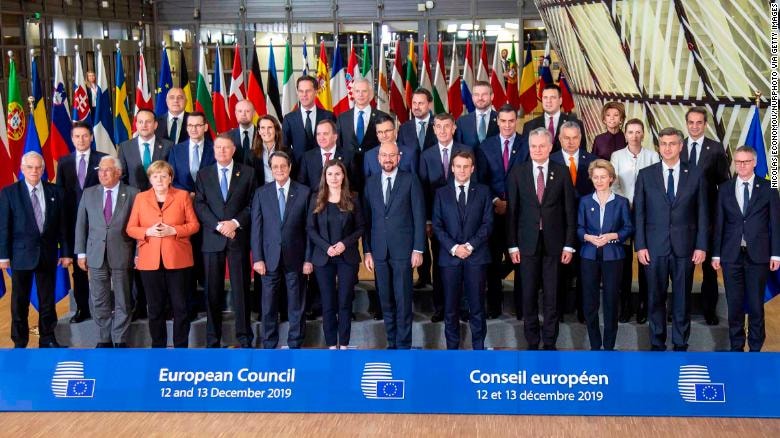 |
| European leaders at an event. Photo: CNN |
German public opinion supports Chancellor Merkel's vision. Her likely successor in the upcoming election, Armin Laschet, also called for a thaw in relations with Russia in an interview with the Financial Times last week, saying the West must try to "build a realistic relationship" with Moscow.
“Ignoring Russia does not serve European interests and it does not serve American interests either.”
In fact, the German-French initiative has created divisions in Europe as Eastern Europe and the Baltic states bordering Russia are wary of any moves to loosen ties with Moscow. This initiative has also put the countries most concerned about Russia, such as Ukraine, Georgia and Moldova, on alert. These countries believe that inviting President Putin to the EU Summit makes the bloc's approach to Moscow softer and inevitably eases sanctions against Russia./.


